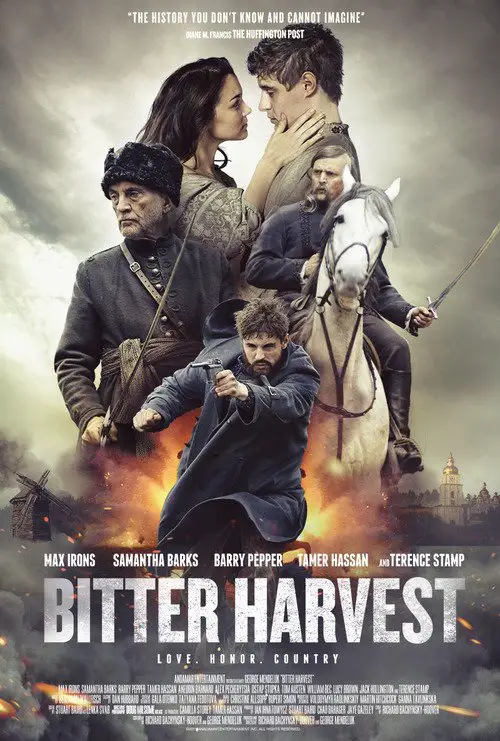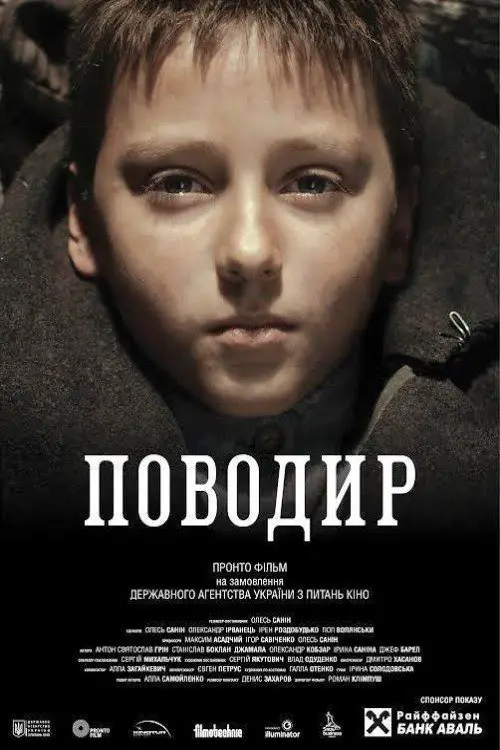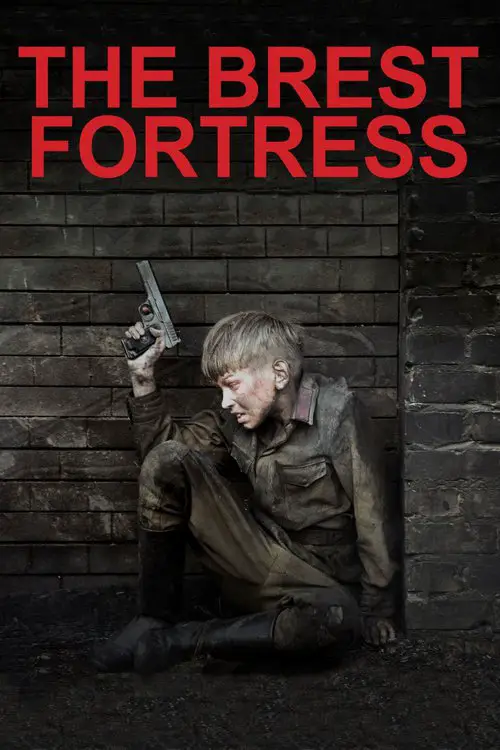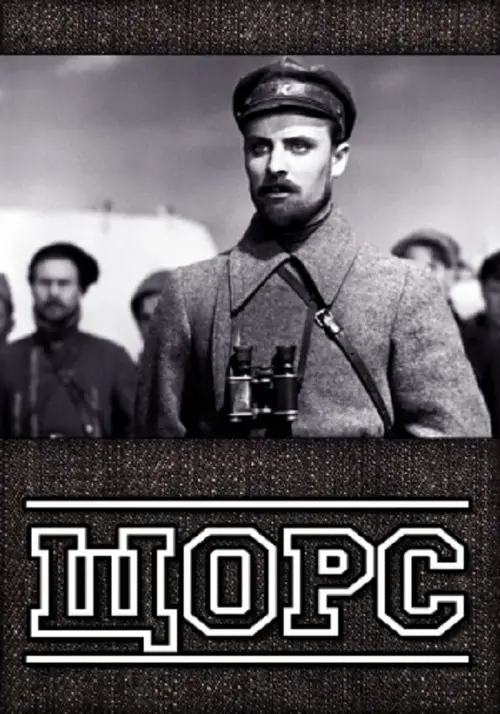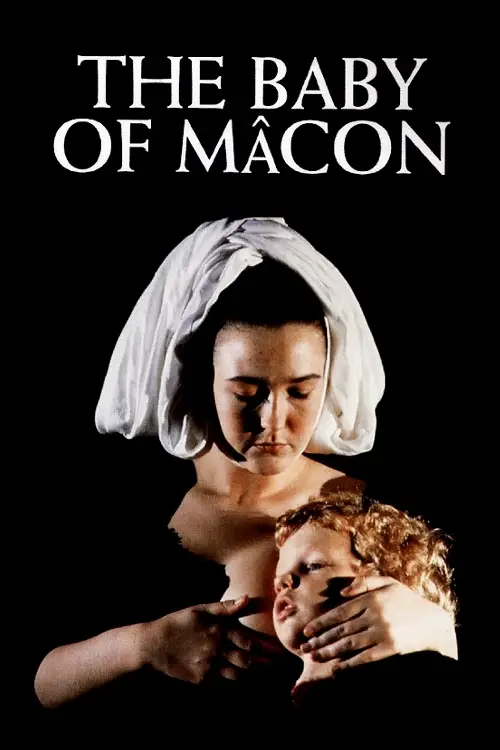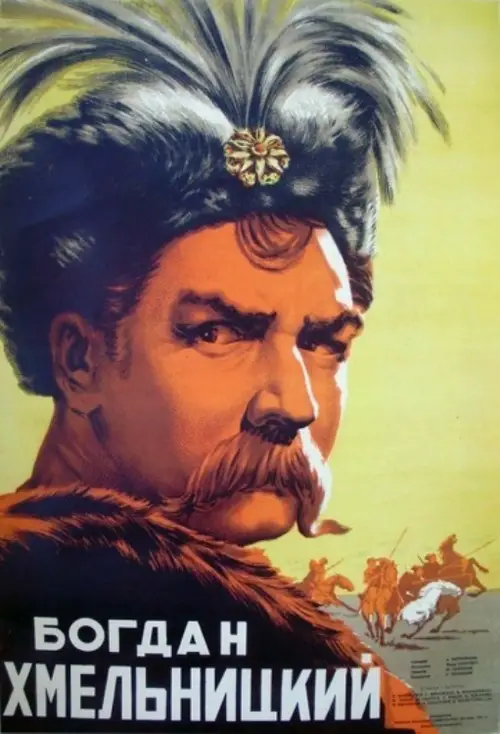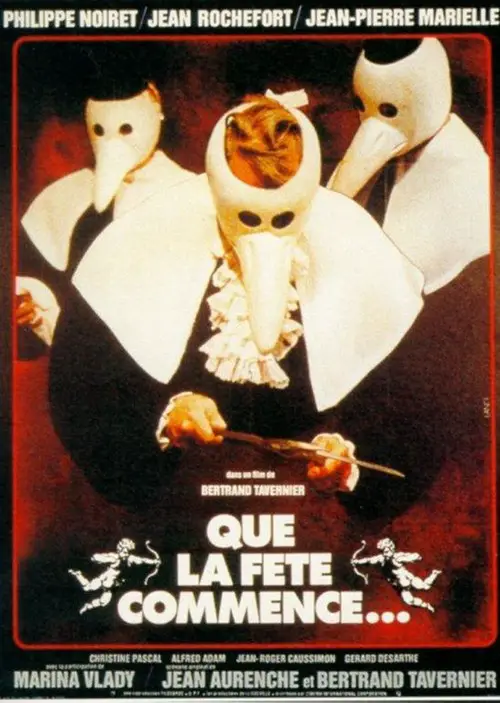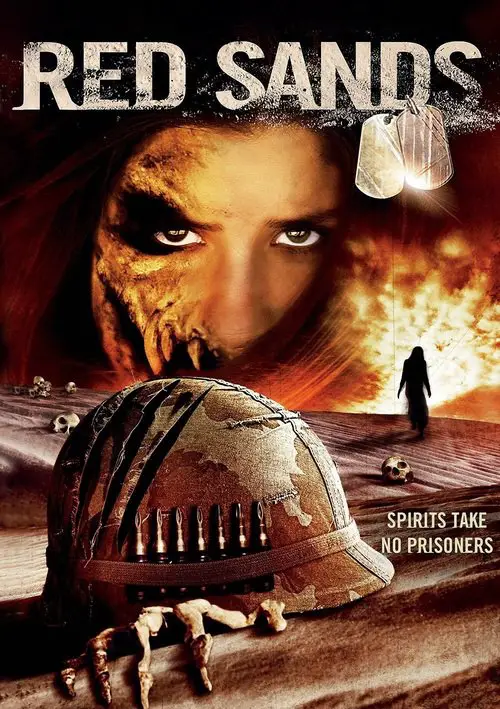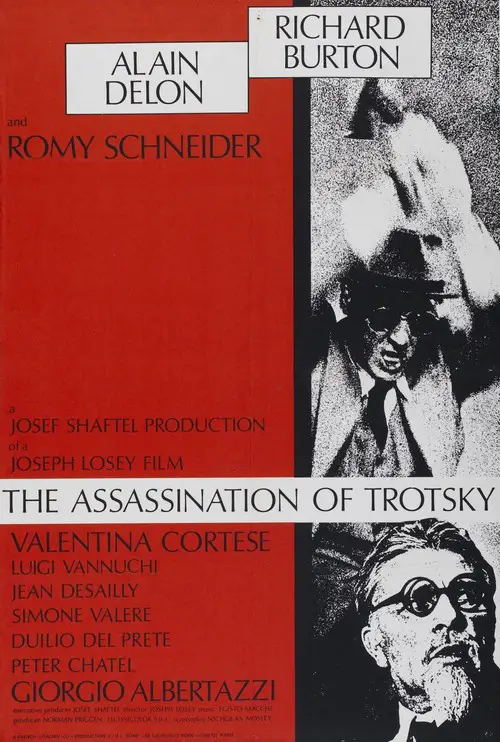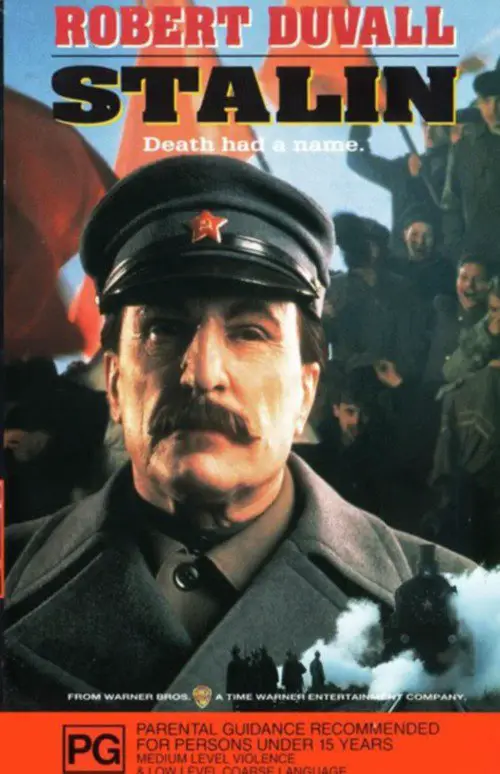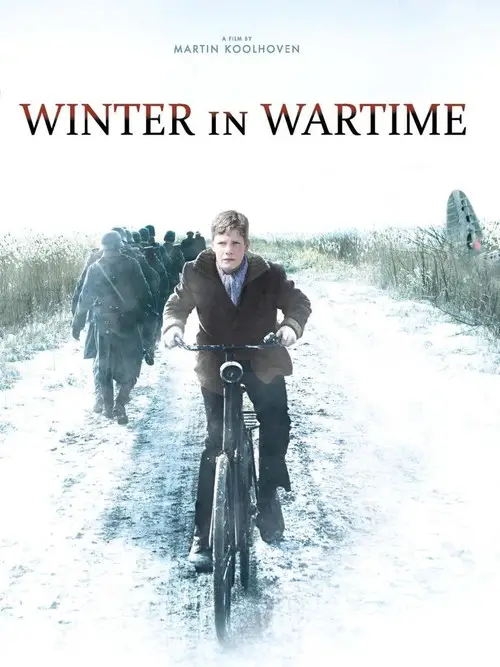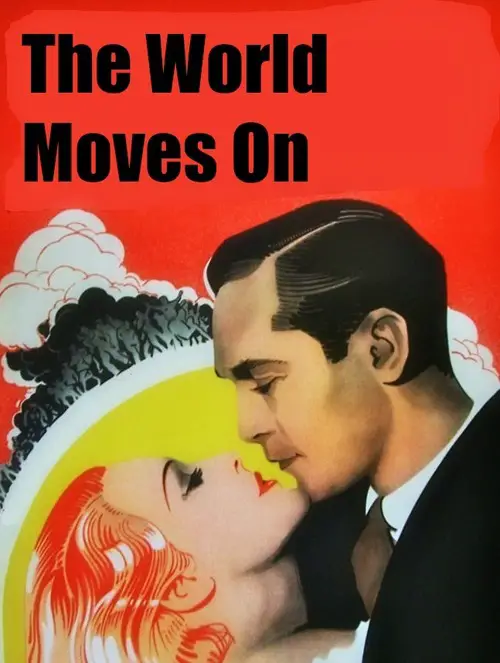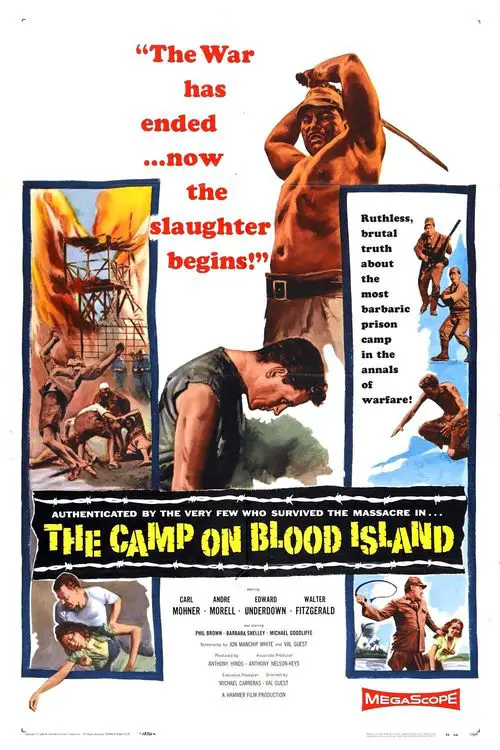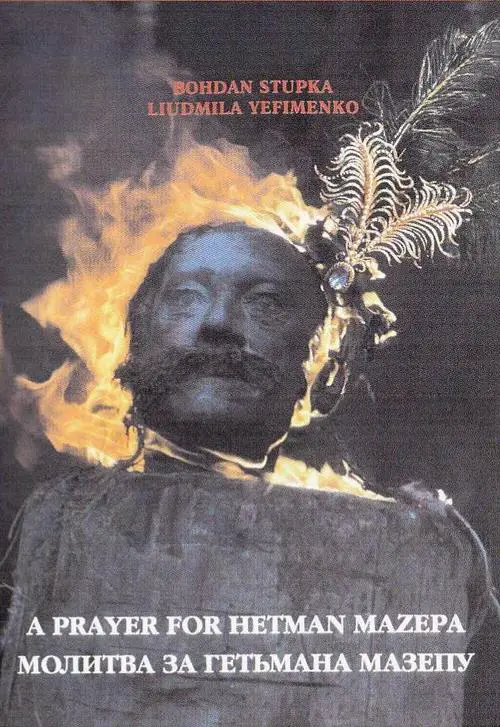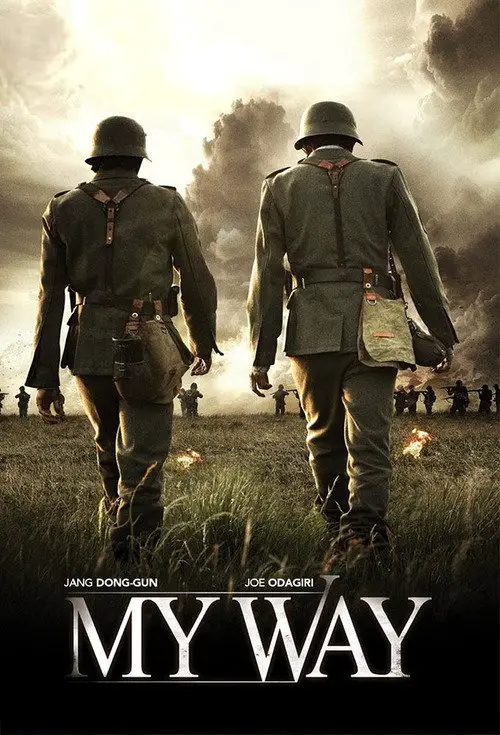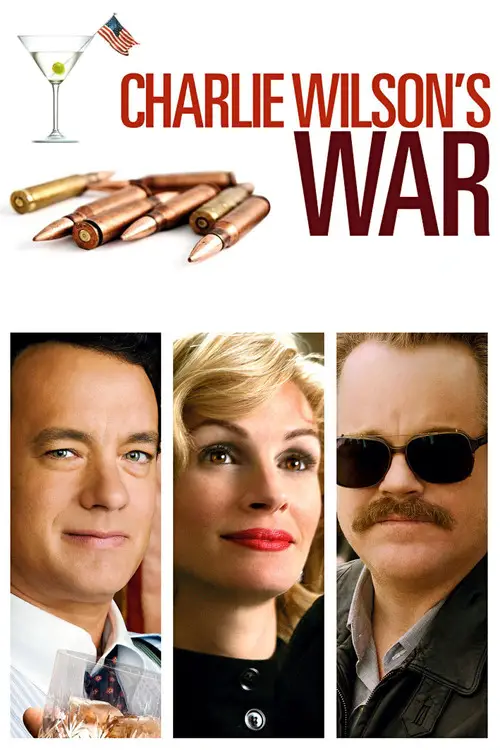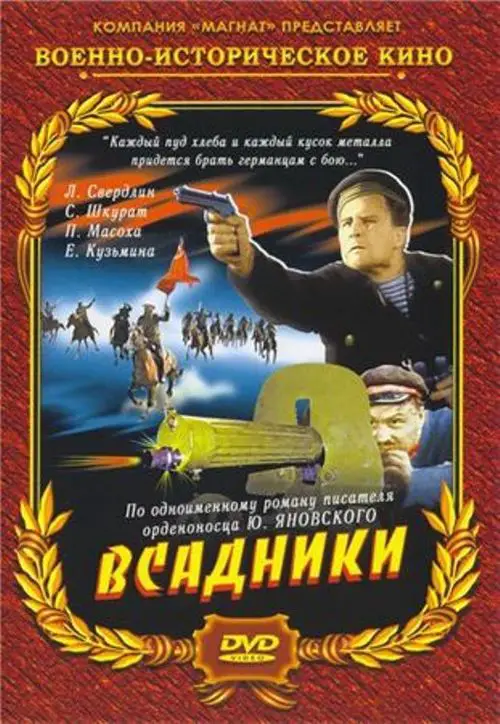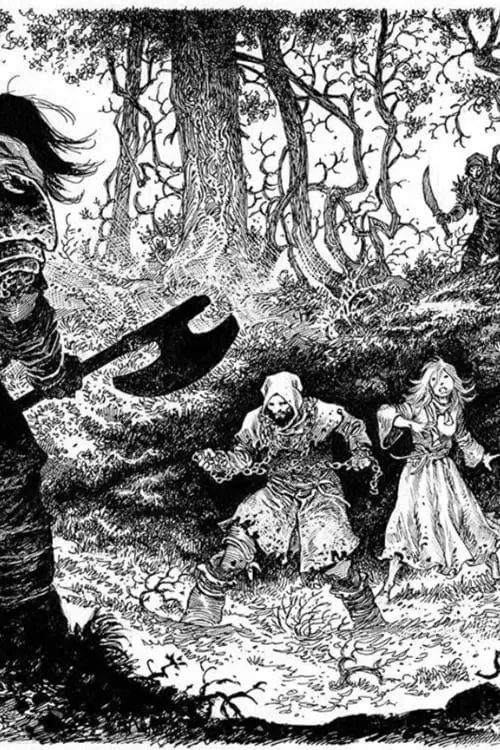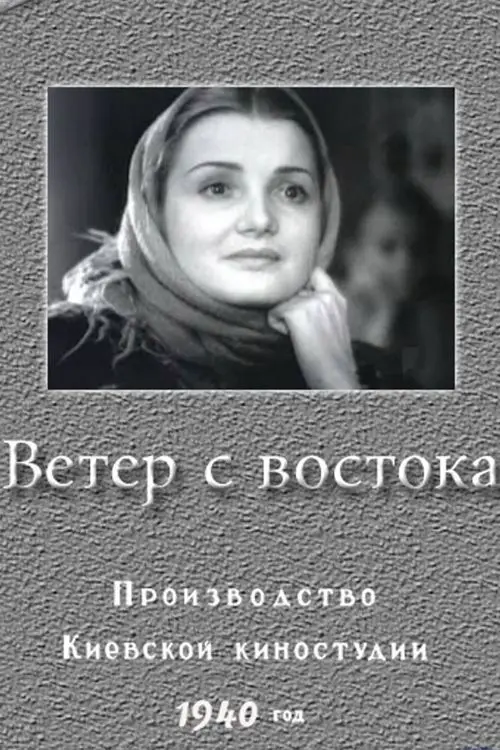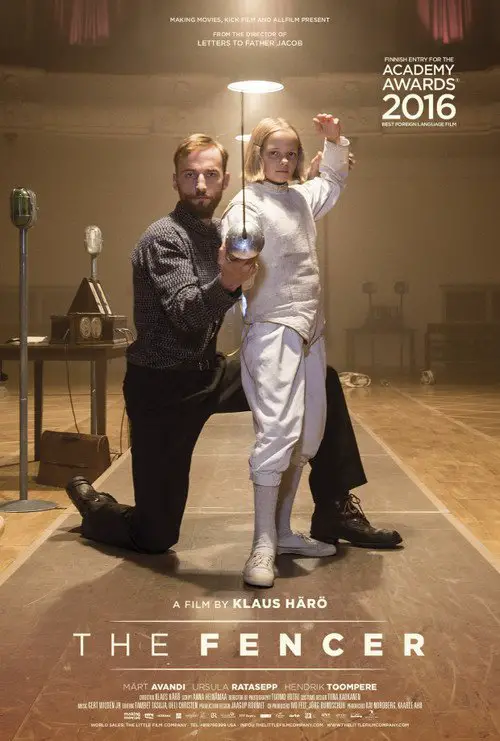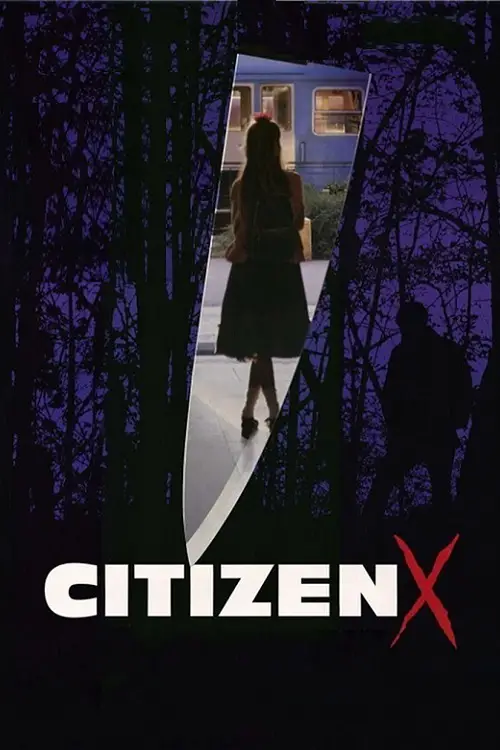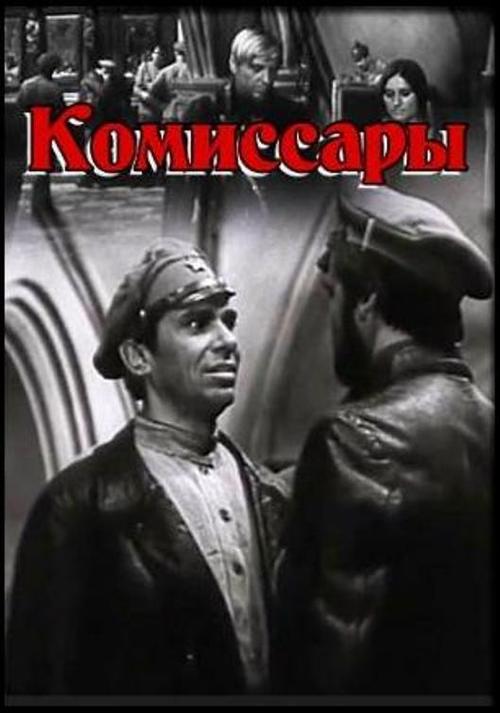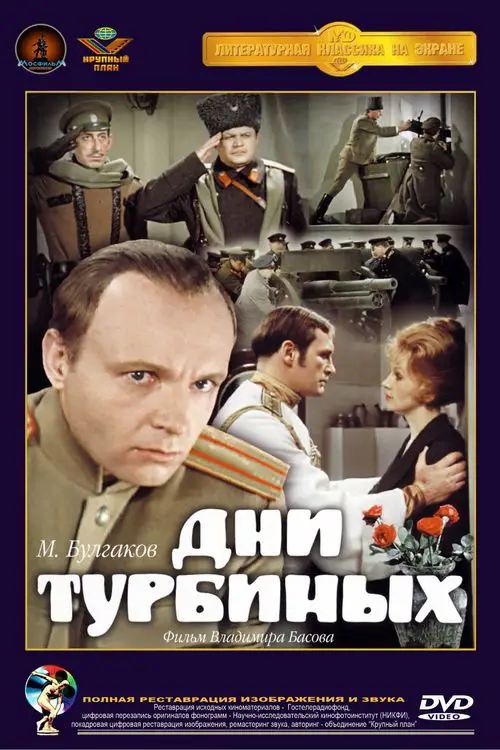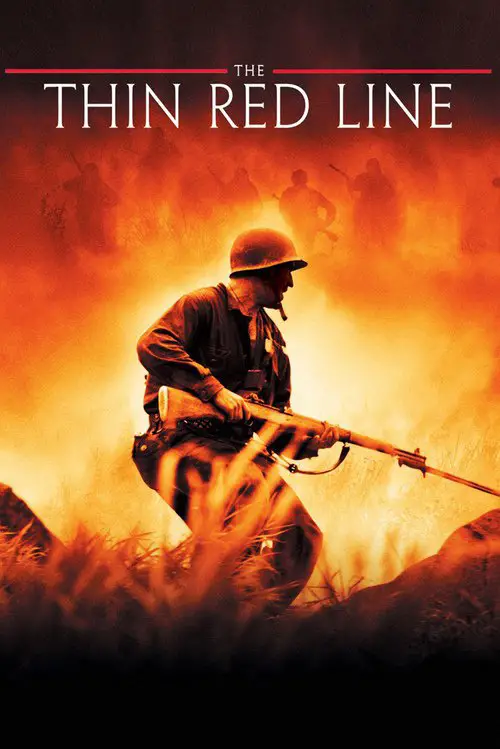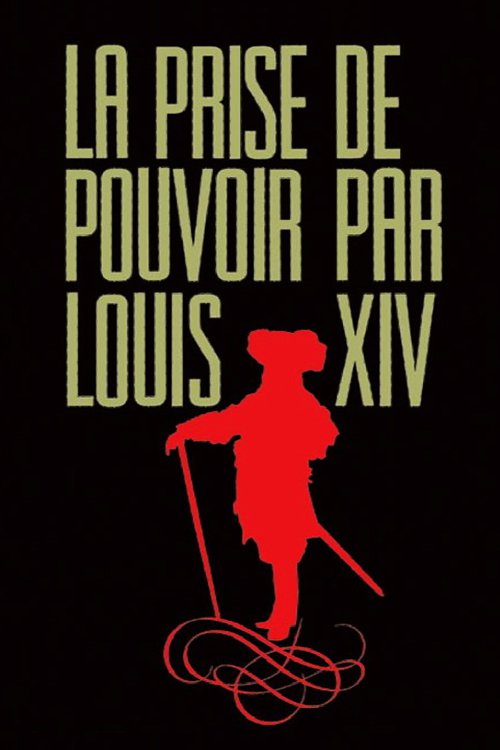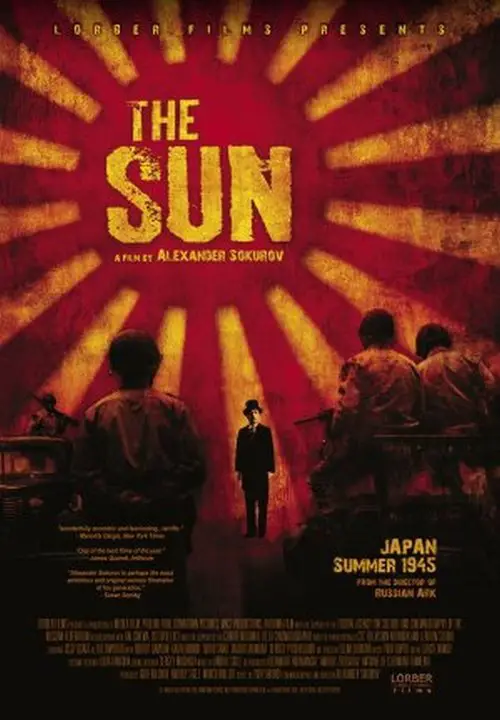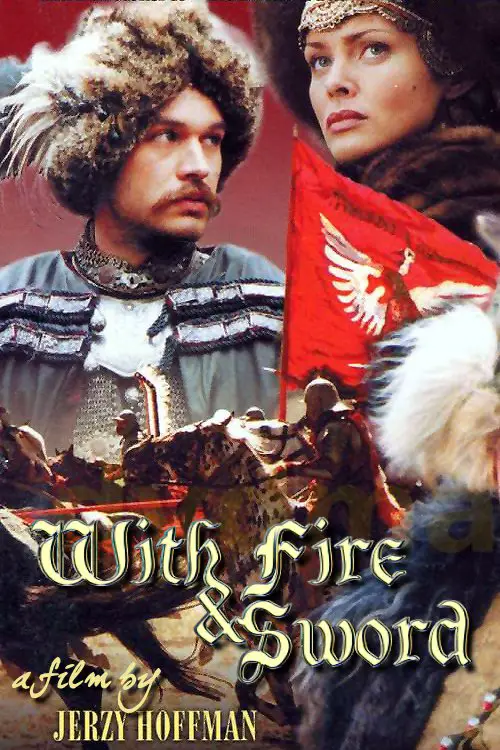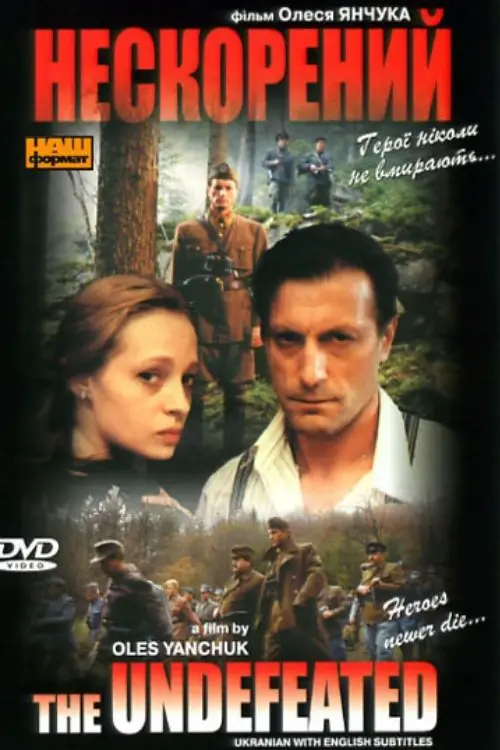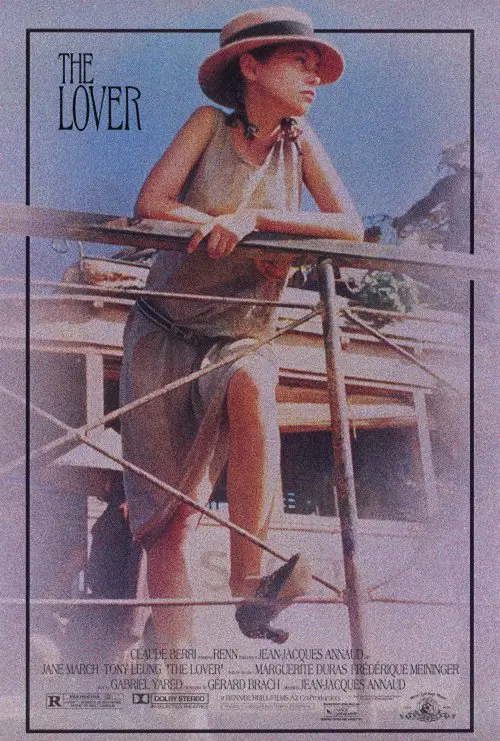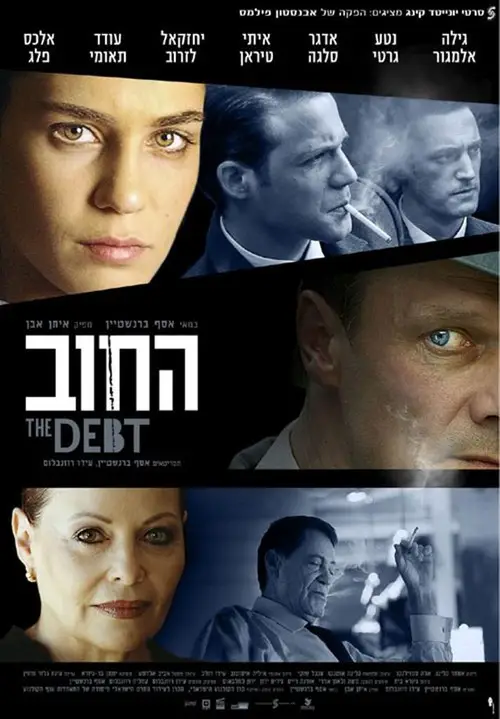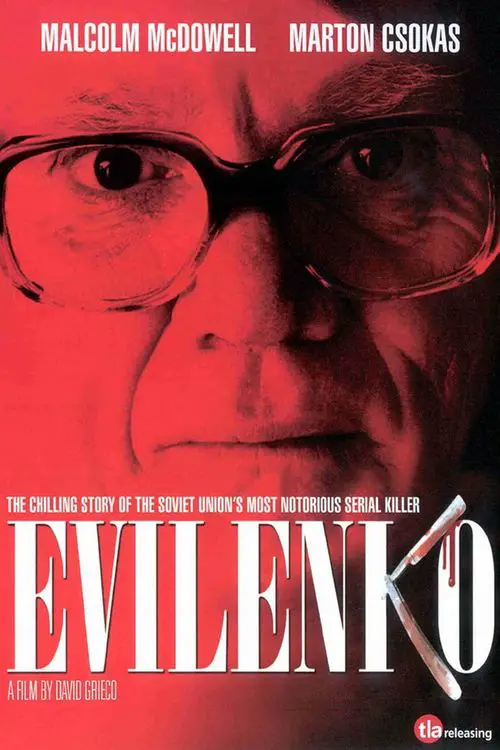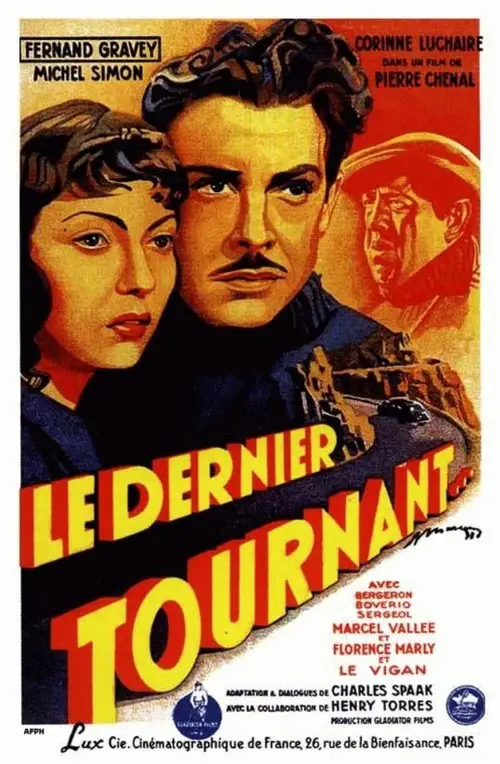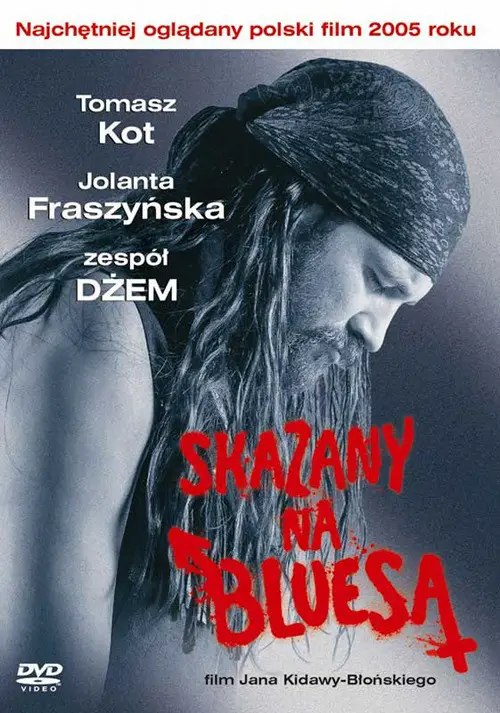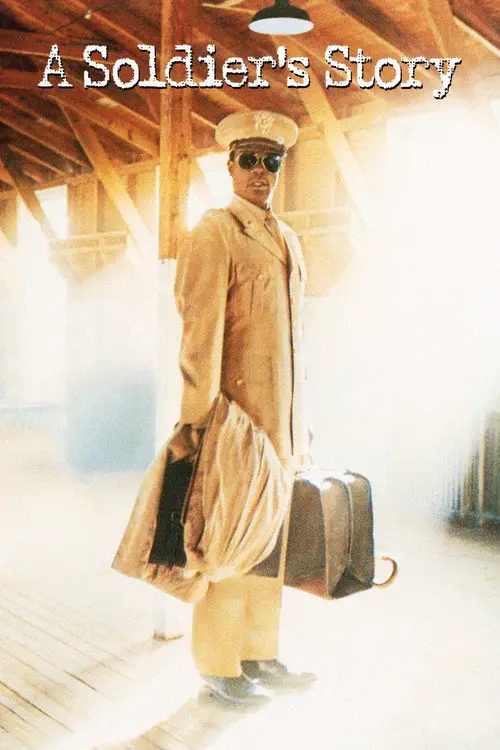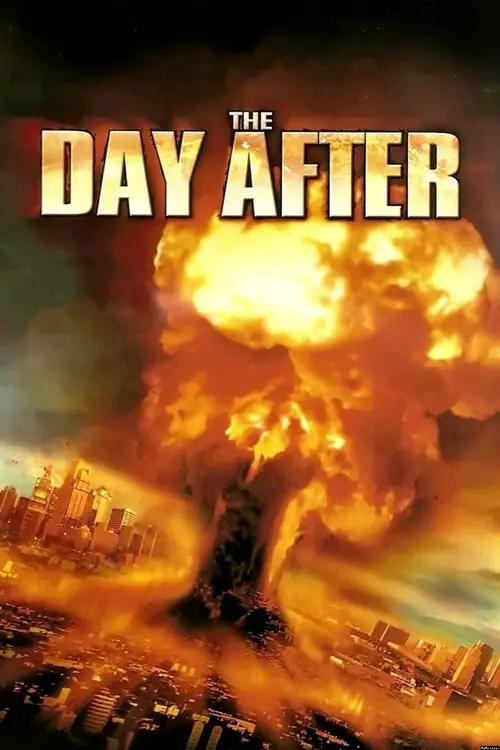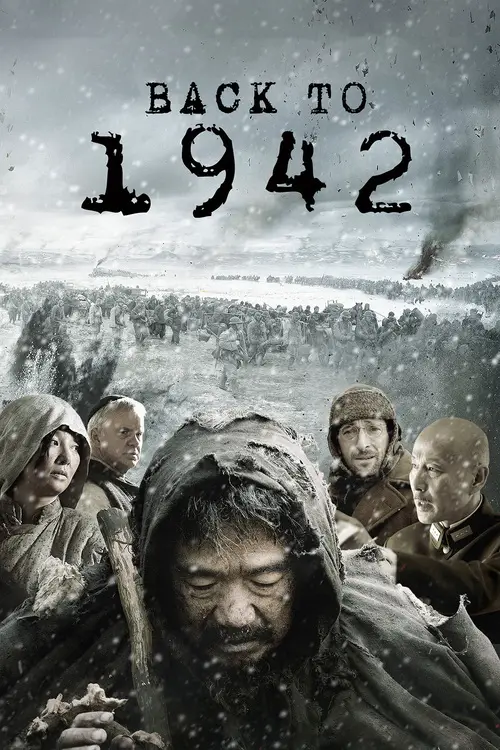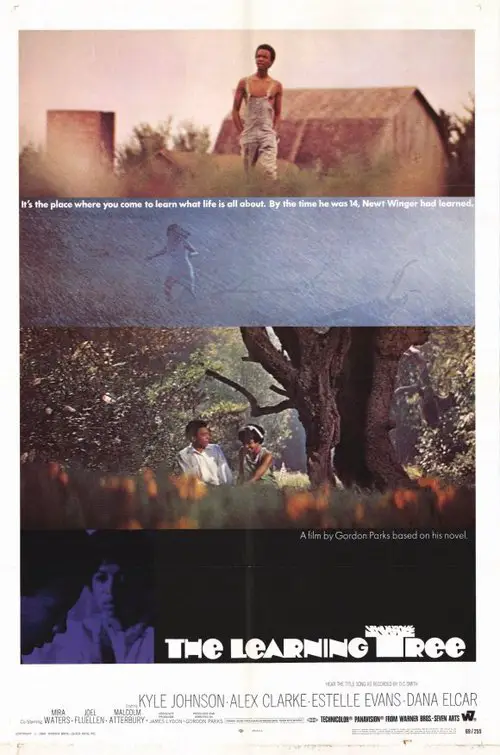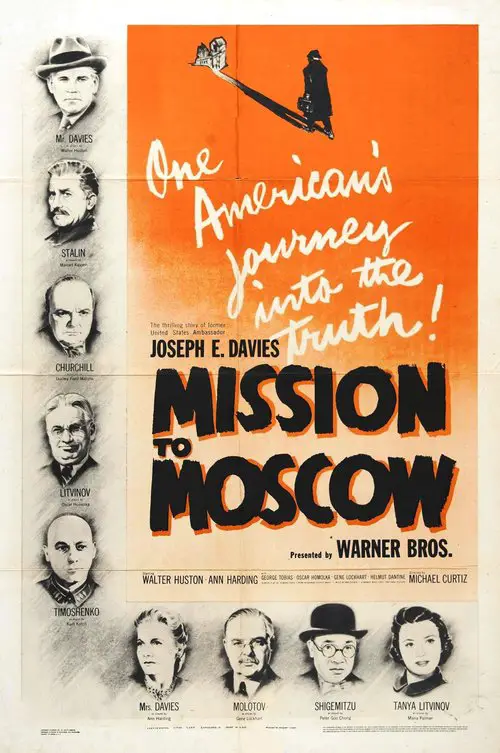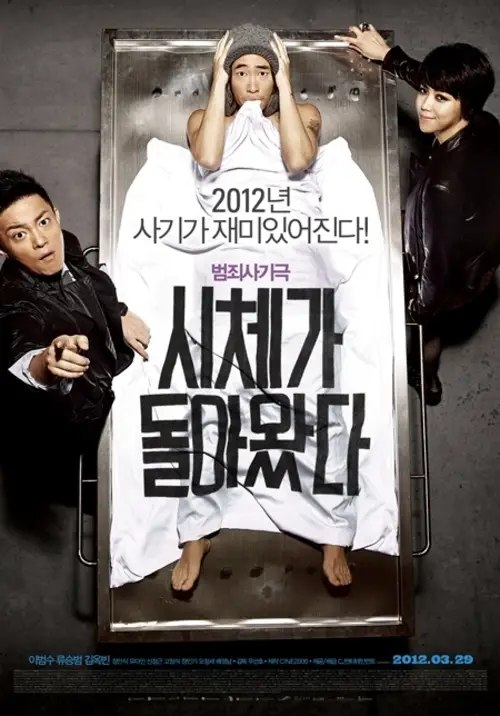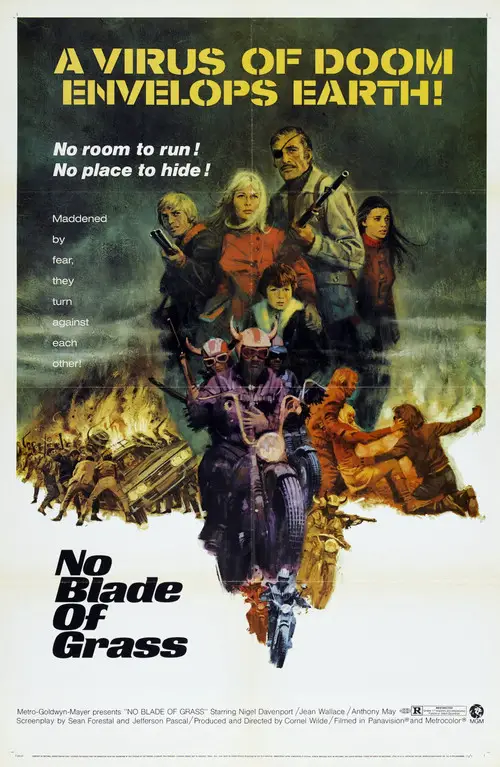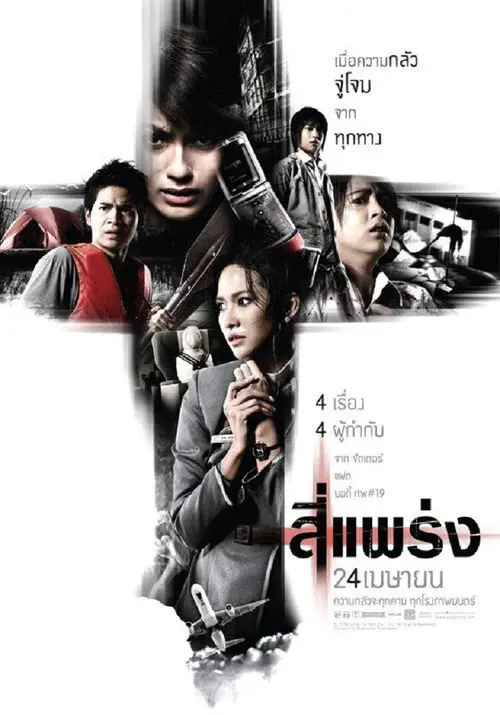Famine-33 (1991)
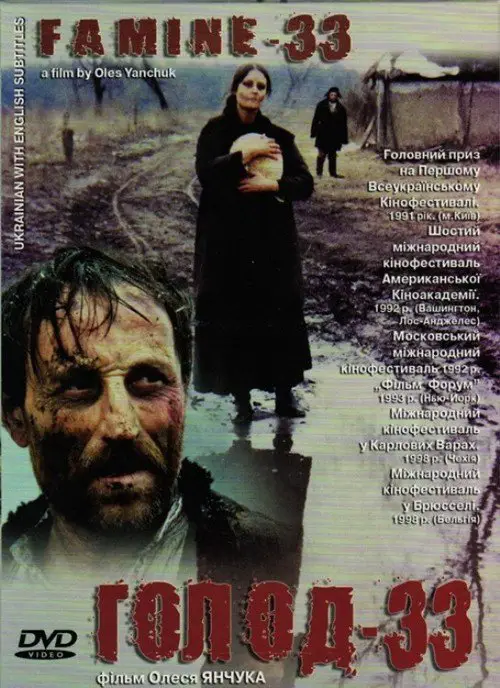
Similar movies
Set between the two World Wars and based on true historical events, Bitter Harvest conveys the untold story of the Holodomor, the genocidal famine engineered by the tyrant Joseph Stalin. The film displays a powerful tale of love, honour, rebellion and survival at a time when Ukraine was forced to adjust to the horrifying territorial ambitions of the burgeoning Soviet Union.
The year is 1919. German troops retreat from Ukraine. The Directory, the Ukrainian national government lead by Symon Petliura, takes control of Kyiv. Meanwhile, the Bolshevik division commanded by Mykola Shchors is marching on the capital. The Bolsheviks capture the cities of Vinnytsia, Zhmerynka, and others one by one, but lose Berdychiv to Petliuraâs forces. They are demoralized by the defeat. By his personal example of courage and military skill, Shchors inspires the retreating Red troops and leads them to victory over the enemy.
A town cursed with barren women and famine is saved by a miracle birth to an old, ugly woman: the Mother. Immediately afterwards, the old woman's Daughter (Ormond) claims to have delivered the baby herself in a virgin birth. She imprisons the Mother and begins to exploit the Baby by selling blessings to the desperate townspeople of Mâcon.
France, 1719. Louis 14th died four years ago, Philippe d'Orleans is the regent. He is a liberal and a libertine. His right-hand man, Dubois, an atheistic and cupid priest, as libertine as Philippe, tries to take advantage of a little rebellion lead by a Breton squire (Pontallec) and of the famine to become archbishop... Description of the life of the court in this period of transition where the French Revolution smoulders.
During World War II in the freezing Netherlands winter of 1944/1945 the western Netherlands are in the grip of a famine. Many people move east to provide for their families. Fourteen year old Michiel can't wait to join the Dutch resistance, to the dismay of his father, who, as mayor, works to prevent escalations in the village.
Eric O'Neill, a computer specialist who wants to be made an agent is assigned to clerk for Robert Hanssen, a senior agent with 25 years in the FBI, and to write down everything Hanssen does. O'Neill's told it's an investigation of Hanssen's sexual habits, however Hanssen is really suspected of spying for the Soviet Union and Russia for years and being responsible for the deaths of agents working for the United States.
Two families, cotton merchants in England and America, with branches in France and Prussia swear to stand by each other in a belief that a great business firmly established in four countries will be able to withstand even such another calamity as the Napoleonic Wars from which Europe is slowly recovering. Then many years later, along comes World War One and the years that follow, to test the businesses.
Set in a Japanese prisoner of war camp during World War II, the film focuses on the brutality and horror that the allied prisoners were exposed to as the Japanese metered out subjugation and punishment to a disgraced and defeated enemy. This harrowing drama concentrates on the deviations of legal and moral definitions when two opposing cultures clash. Although fictional, this was one of the earliest films to deal realistically with life and death in a Japanese prisoner-of-war camp during the Second War.
'A Prayer for Hetman Mazepa' unfolds during an interesting era in the history of Eastern Europe when Russia, under Peter the Great, and Sweden, under King Charles XII, struggled for power; the Ukraine was the pawn in the middle. In 1709, Ivan Mazepa, Hetman of Ukraine, which was part of the Russian Empire, signed a pact with the Swedish king promising to support Sweden in its war against Russia provided that the Ukraine was given its independence.
Inspired by a true story. Jun Shik works for Tatsuo's grandfather's farm while Korea is colonized by Japan, but he has a dream to participate in Tokyo Olympics as a marathon runner. Tatsuo also aims to become a marathon runner, so the two are in rivalry. But war breaks out and they both are forced to enlist in the army. Tatsuo becomes the head of defense in Jun Shik's unit and he devises a scheme but fails. Jun Shik and Tatsuo are captured by the Soviets. They run away but soon are captured by Germans and forced to separate. In 1944, they meet again at the shores of Normandy.
In 1980, the United States Ice Hockey team's coach, Herb Brooks, put a ragtag squad of college kids up against the legendary juggernaut from the Soviet Union at the Olympic Games. Despite the long odds, Team USA carried the pride of a nation yearning for a distraction from world events. With the world watching, the team rose to the occasion, prompting broadcaster Al Michaels' now famous question to the millions viewing at home: "Do you believe in miracles?" Yes!
Episodic story of the resistance to the German invasion of the Ukraine in 1918 during World War 1, and made as an example of the guerrilla warfare and fierce spirit in which Ukrainian peasants were again resisting Teuton onslaughts in 1939. Highlights a small band of guerrillas and their battles using scythes, shotguns and, often, just clubs against the Kaiser's army in the Ukrainian forests.
The story unfolds in the winter of the year 1215. A mysterious stranger who has escaped from prison arrives in a tiny, remote village in the kingdom of France plagued by famine and leprosy, and ruled by an ageing lord, a former hero from the Crusades, Lord Ocam. Together with his horde of knights, Ocam abducts a young girl from the village in order to exert his droit du seigneur over her. A handful of villagers, backed up by The Stranger, attempt to release her, but they only have until nightfallâ¦
An introverted champion athlete arrives from Leningrad to Haapsalu in 1952 to become a PE teacher. Against principal's opposition, he starts teaching children fencing. From a bumpy begininng, fencing becomes a therapy for children and the trainer after rough war time. But principal still wants to know why the athlete came to Haapsalu in the first place.
Based on the true story of a Russian serial killer who, over many years, claimed victim to over 50 people. His victims were mostly under the age of 17. In what was then a communists state, the police investigations were hampered by bureaucracy, incompetence and those in power. The story is told from the viewpoint of the detective in charge of the case.
During the Boer War, three Australian lieutenants are on trial for shooting Boer prisoners. Though they acted under orders, they are being used as scapegoats by the General Staff, who hopes to distance themselves from the irregular practices of the war. The trial does not progress as smoothly as expected by the General Staff, as the defence puts up a strong fight in the courtroom.
Max Manus is a Norwegian 2008 biographic war film based on the real events of the life of resistance fighter Max Manus (1914â96), after his contribution in the Winter War against the Soviet Union. The story follows Manus â played by Aksel Hennie â through the outbreak of World War II in Norway until peacetime in 1945.
This ideologically charged film as a typical sample of Soviet version of history portrays the events in Ukraine in 1921 after the defeat of Ukrainian liberation struggle and the occupation of the country by invading Bolshevik hordes. The Bolsheviks are good guys and Ukrainian rebels refusing to submit to a new, this time Soviet, slavery are portrayed as bandits and brigands fighting against their own people.
Based on the graphic novel by James Jones, The Thin Red Line tells the story of a group of men, an Army Rifle company called C-for-Charlie, who change, suffer, and ultimately make essential discoveries about themselves during the fierce World War II battle of Guadalcanal. It follows their journey, from the surprise of an unopposed landing, through the bloody and exhausting battles that follow, to the ultimate departure of those who survived. A powerful frontline cast - including Sean Penn, Nick Nolte, Woody Harrelson and George Clooney - explodes into action in this hauntingly realistic view of military and moral chaos in the Pacific during World War II.
Cardinal Mazarin dies, leaving a power vacuum in which the young Louis asserts his intention to govern as well as rule. Mazarin's fiscal advisor, Colbert, warns against Fouquet, the Superintendant who has been systematically looting the treasury and wants to be prime minister. Fouquet believes Louis will soon tire of exercizing power and overplays his hand by offering a bribe to Louis' mistress to be his ally. She reports this to the king who arrests Fouquet. Louis and Colbert design a brilliant strategy to keep merchants making money, nobles in debt, the urban poor working and fed, and peasants untaxed. Years later, in a coda, we see Louis exercizing the power of the sun.
The Sun (Russian: СóлнÑе, Solntse) is a 2005 Russian biographical film depicting Japanese Emperor ShÅwa (Hirohito) during the final days of World War II. The film is the third drama in director Aleksandr Sokurov's trilogy, which included Taurus about the Soviet Union's Vladimir Lenin and Moloch about Nazi Germany's Adolf Hitler.
In 1950, long after the world has finished fighting World War II, a fight continues behind the newly drawn Iron Curtain: as the Ukrainians keep fighting both Nazi and Soviet abuses, General Roman Shukhevych (Hryhoriy Hladiy) is forced by brutal circumstances and his own sense of honor and duty to lead this effort as an underground war. As portrayed by the film, Shukhevych is a genteel family man who is also a complex character (revolted by ethnic discrimination, a music lover and a military genius) that with his charisma fuels his countrymen with desire for freedom. In the end, Shukhevych's efforts are unable to defeat the Soviets despite paying for his resistance with his life, but they re-enforce Ukrainian patriotism as an underground force until Ukraine finally recovers its freedom from Soviet tyranny.
The year is 1964. Rachel Brener is one of 3 young Mossad agents teem who caught "THE SURGEON OF BIRKENAU" - a Nazi monster who was never brought to trial in Israel. The official reason was that he was shot to death while trying to escape from Israeli captivity in a safe house somewhere in Europe. 30 years after, the well communicated death story of the monster could be questionable, a small article appears in a local unimportant paper in a small town in Ukraine. Surprisingly the Surgeon is ALIVE and is willing to admit his crimes against the human race and especially the Jews. The 3 older x Mossad agents who are in their late 60th became aware to this unfortunate threatening knowledge. The fact was that the "Surgeon" managed to escape from his guards 30 years ago.
In 1984, in Kiev, the communist teacher Andrej Romanovic Evilenko is dismissed from his position after a pedophilic act against a student. On 15 May 1984, the pedophile Evilenko begins to rape children, and then slashing the victims in pieces and eating them. The magistrate family man Vadim Timurouvic Lesiev is assigned to catch the serial killer and almost eight years later he finally captures the monster that killed fifty-five persons, most of them children and young women. On 22 May 1992, Evilenko goes to the court and on 14 February 1994 he is finally executed.
In the towm of Tynen, Louisiana, a black Master Sergeant is found shot to death just outside the local Army Base. A military lawyer, also a black man, is sent from Washington to conduct an investigation. Facing an uncooperative chain of command and fearful black troops, Captain Davenport must battle with deceipt and prejudice in order to find out exactly who really did kill Sergeant Waters.
The film portrays a fictional nuclear war between NATO forces and the Warsaw Pact that rapidly escalates into a full scale exchange between the United States and the Soviet Union, focusing on the residents of Lawrence, Kansas, and Kansas City, Missouri, as well as several family farms situated next to nearby nuclear missile silos.
In 1942, Henan Province was devastated by the most tragic famine in modern Chinese history, resulting in the deaths of at least three million men, women and children. Although the primary cause of the famine was a severe drought, it was exacerbated by locusts, windstorms, earthquakes, epidemic disease and the corruption of the ruling Kuomintang government.
The story, set in Kansas during the 1920's, covers less than a year in the life of a black teenager, and documents the veritable deluge of events which force him into sudden manhood. The family relationships and enmities, the fears, frustrations and ambitions of the black teenager in small-town America are explored with a strong statement about human values.
The film's name comes from the song "Stand By Me" by Ben E. King from 1961. The song was also the theme song. This film was modeled from a novella by Stephen King called "The Body" and was the ninth filmed story from the author. The film tells the story of a group of 10-year-old friends out on their own and the trials and tribulation they are confronted with along the journey.
This lovely, 1991 adaptation of Elizabeth Von Arnim's novel has a superb cast and a tone so mellow you can feel your pulse get slower. Josie Lawrence and Miranda Richardson play a pair of unhappily married women who rent an Italian villa for a month, sharing the rent with a crusty Englishwoman (Joan Plowright) and a lonely aristocrat (Polly Walker). Sun, rest, sinking into the green grass for long naps--they all have a soulful effect on the quartet, and then on the men in their lives who make a surprise visit. Mike Newell (Into the West) directs with seeming effortlessness, and it is impossible not to be swayed by the promise of restoration for these burdened characters--or for anyone alive. Wonderful performances all around, including a particularly sensitive one by Alfred Molina and a very funny one by Jim Broadbent.
Science researcher Hyun-Chul (Lee Beom-Soo) demonstrates with co-workers against the company president, who stole an important semiconductor chip and is attempting to flee to the United States. Meanwhile, the company president makes his escape from the protesters in an ambulance. During his escape, the executive cuts a wound in his arm and implants the chip there. While, Hyun-Chul and co-worker Han Jin-Soo (Jeong In-Gi) head for home, Han Jin-Soo is hit by a speeding car. Hyun-Chul thinks it isn't an accident. He contacts Han Jin-Soo's daughter Dong-Hwa (Kim Ok-Vin) and they meet at the police station. After visting her father at the hospital, Dong-Hwa becomes worried about how to pay for her father's hospital bills. On a TV at the hospital, they learn that the company president died from a heart attack. Hyun-Chul and Dong-Hwa then come up with the idea to steal the body of the company president for ransom.
Rocky must come out of retirement to battle a gargantuan Soviet fighter named Drago, who brutally punished Rocky's friend and former rival, Apollo Creed. Seeking revenge in the name of his fallen comrade and his country, Rocky agrees to fight Drago in Moscow on Christmas, and the bout changes both fighters -- and the world.
Adapted from a 1964 novel of the same name, the film follows a day in the life of George Falconer (Colin Firth), a British college professor reeling with the recent and sudden loss of his longtime parter. This traumatic event makes George challenge his own will to live as he seeks the console of close friend Charley (Juliane Moore) who is struggling with her own questions about life.
A film based on the semi-autobiographical novel of the same name by American writer Jonathan Safran Foer, in which a young Jewish American man endeavorsâwith the help of eccentric, distant relativesâto find the woman who saved his grandfather during World War II, in a Ukrainian village which was ultimately razed by the Nazis.
A strange new virus has appeared, which only attacks strains of grasses such as wheat and rice, and the world is descending into famine and chaos. Architect John, along with his family and friends, is making his way from London to his brother's farm in northern England where there will hopefully be food and safety for all of them.
4bia or Phobia (Thai: สีà¹à¹à¸à¸£à¹à¸ or See Prang) is a Horror Anthology. The first segment, "Happiness" is about a lonely girl who corresponded with a stranger over hand phone text messaging and soon discovered something strange about this new stranger that she is attracted to. "Tit For Tat" spun a tale of black magic and vengeance for a school kid that had been bullied by a school gang. "In The Middle" - a group of friends faced one of their worst camping trip after water kayaking accident. The final segment "Last Fright" takes horror to new heights with a psychological thriller that involves a stewardess flying solo in a cabin with a dead body.
© Valossa 2015–2026
| Privacy Policy
